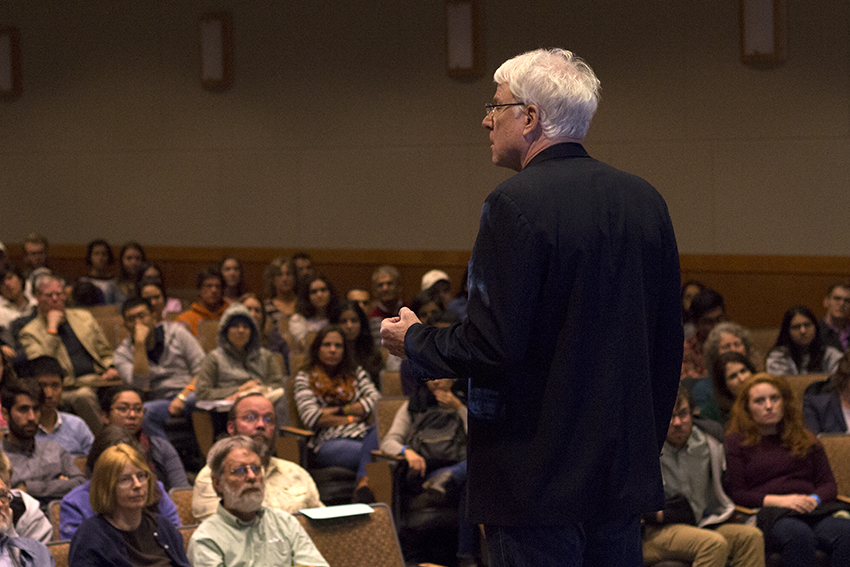The mating habits of the animal kingdom really aren’t so different than what we see at UT, said evolutionary psychologist David Buss during a Friday lecture.
“We can compete with each other, intersexually, for positions in status hierarchies without ever engaging in physical contact,” said Buss, a UT psychology professor and alumnus. “I can tell you that physical contests do occur sometimes, but I have been teaching at four different universities and not once have I ever walked across campus and watched two males going at it ringed by a group of females, waiting to see which would be the victor and then having sex with him.”
A founder of his field, Buss spoke about his latest book, “The Evolution of Desire: Strategies of Human Mating,” and its connection to his 2008 study of human mating selection. Buss said human status hierarchies and positions within these hierarchies can be associated with attractiveness to potential partners.
“‘The sight of a peacock gives me nightmares,’ Darwin described in his writings,” Buss said. “Darwin also noticed sexual dimorphism, differences in the size and shape of males and females of the same species.”
Women’s standards of attractiveness tended to be higher and were found to be more selective than their male counterparts, Buss said. The desire for a loving relationship, an exciting personality, good health, kindness, intelligence and sociability were universal among men and women, Buss said. He also said hetero and homosexual men have similar habits in choosing sexual partners, and the same can be said of hetero and homosexual women.
Biology junior Jovanny Salinas attended the lecture with his animal behavioral science class and said he had just studied these concepts in class.
“It was pretty interesting to see the application of the sexually antagonistic coexistent evolution to humans,” Salinas said. “I never saw it in that perspective. When we see this in animals, the sex that is being attacked develops a protection against the attacker, so it’s kind of weird that we saw a different matter in humans.”
Chantal Neutzler, a biology junior, said thinking about humans the way Buss’s animal kingdom examples painted animal mating behavior was just funny.
“We’re college students, so obviously mating behavior is just in the environment,” Neutzler said. “It’s in the air. It’s just kind of funny to apply mating behaviors of organisms to actual human beings.”





















